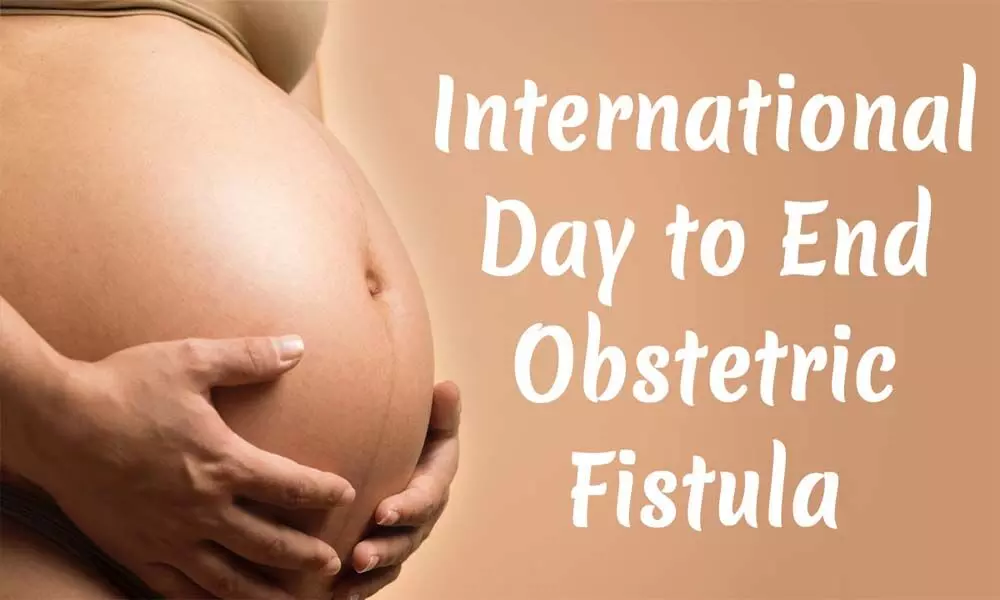International Day for End of Obstetric Fistula: Know its Theme & Obstetric Fistula is Preventable

Birth related injuries to mothers, this can be absolutely devastating, it can have long-term effects.
Birth related injuries to mothers, this can be absolutely devastating, it can have long-term effects. It can also affect personal relationships, mental health and careers. Obstetric Fistula, this is considered as one of the most serious as well as tragic childbirth injuries. A hole between the birth canal as well as bladder and/or rectum, it is caused by prolonged, obstructed labour without having access to timely, high-quality medical treatment. This leaves women, having incontinence problems, and it often leads to chronic medical problems, social isolation, depression and deepening poverty.
The above problem is preventable with the correct medical assistance as well as its occurrence is a violation of human rights and it is reminder of gross inequities.
This year's theme is, Women's rights are human rights! End fistula now
To achieve sustainable development goals(SDGs) as well as realizing the promise of the Beijing Declaration and platform for Action and Programme of Action of International Conference on Population and Development. Both, plans, should be oriented to fight for women's rights, which does include sexual and reproductive health.
To reach the specific goal, the UN Population Fund has launched an updated manual that serves as a crucial resource and it acts as a guiding light on the path so that they achieve health, human rights for all and gender equality.
As per the last report of the Secretary General, 2020 marked the count-down towards the goal of ending the problem of obstetric fistula by the year 2030.
Obstetric Fistula is Preventable
This could be, largely avoided by delaying the age of 1st pregnancy and cessation of harmful traditional practices, its timely access to obstetric care.
It is unfortunate, the present pandemic does affect different preventive measures in developing nations, where obstetric fistula still exists. More women as well as girls would be at risk of obstetric fistula due to the overburdened health system.
During the Covid-19, fistula repairs have been suspended because they are deemed because of non-urgent and hospitals have diverted their resources, to care for patients having Covid-19.
More number of Marriages by 2030
By the year, 2030, more marriages would take place, that is nearing 13 million more marriage might be held, the reason being, as to why, many families, would like to marry off their daughter, so that lighten the perceived burden of caring for them, especially in the anticipated economic fallout of the pandemic.
New Strategies are needed
Due to all these, there has been an increase in the number of cases, which might occur and new strategies would be required in the Post-Covid-19 recovery period, so that one can address the expected backlog of cases.
Call for the international Community
Due to this possible, future scenario of preventive measures in danger, now more than ever before, it is significant to call on the international community to use the International Day to End Obstetric Fistula, this would significantly raise both awareness as well as intensify actions, which would help end the obstetric fistula as well as urging post-surgery follow-up as well as tracking of fistula patient.
Did you know that?
• We find, hundreds of thousands of women as well as girls in Sub-Saharan Africa, Asia, Latin America, the Arab region and the Caribbean are living with this injury.
• Women, who tend to experience this preventable condition, tend to suffer constant urinary incontinence, as to which often, it can lead to social isolation, kidney disorders, skin infections and even death, it can be left untreated.
• A surgery can help repair the injury with high success rates as high as 90% for less complex cases.
• The average cost of this treatment, which does include surgery, post operative, care as well as rehabilitation support, is $600 for each patient.
















